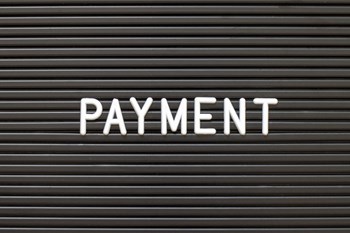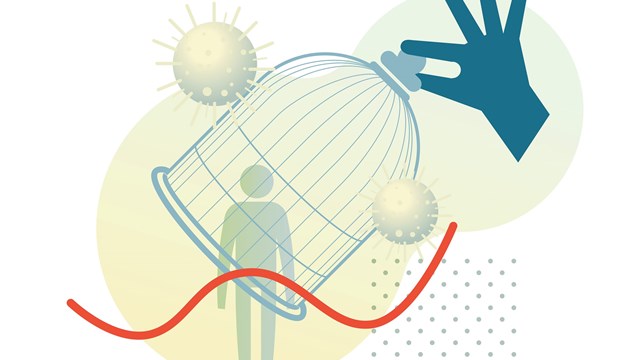
Monthly assessments are vital for the continued operation of condominium associations. Unfortunately, the coronavirus pandemic may pose a financial hardship to many unit owners in the coming weeks and months and result in increased assessment delinquencies. Below is a summary of what community associations need to know about collecting assessments during the coronavirus pandemic.
A Duty to Collect
Both statutory and case law in Illinois impose a fiduciary duty upon community association boards of directors to act in the best interest of their association (and all its owners), as well as a duty to enforce the association’s governing documents. Once the operating budget is set for the year, boards are required to collect each owner’s pro-rata share of the budget -- i.e., assessments.
Assessments are calculated based on the association’s approved budget -- most of which are fixed expenses for operating the association, from paying utility bills to keeping the lights on in common areas and elevators operating, and payroll for staff, including maintenance and janitorial personnel who are likely disinfecting the common elements regularly during the coronavirus crisis. Other day-to-day costs include property and general liability insurance, necessary maintenance, repairs and replacements of the common elements, and the like.
When questions arise about how and under what circumstances a board might alter their association’s approach to assessments, those questions must be considered in light of the aforementioned fiduciary duty. The following are some examples of questions that have become particularly salient given the unprecedented impacts of the current global pandemic, along with our answers from a professional legal perspective.
Q: Can condo associations waive or forbear the collection of assessments?
A: No. Section 18(o) of the Illinois Condominium Property Act (‘the Act’) expressly states that condominium associations “shall have no authority to forbear the payment of assessments by any unit owner.” As such, condominium boards are prohibited from waiving or forbearing the collection of assessments—despite hardships that may arise due to the coronavirus pandemic.
From a practical standpoint, waiving assessments is problematic, because doing so may leave an association underfunded and unable to meet its ongoing expenses, which in turn impacts each unit owner’s underlying investment in the association.
Similar to condominium association assessments, waiving or forbearing HOA assessments is not recommended. Just as in condo associations, failing to collect assessments in an HOA is problematic because assessments are needed to pay for ongoing HOA operations.
Q: Practically speaking, what’s the harm in cutting unit owners some slack on their assessments?
A: Community associations (including condominium associations and HOAs) are not banks or for-profit businesses, and in the event of a budget shortfall, the owners collectively are still responsible for ‘picking up the slack’ -- most commonly by a special assessment. So ultimately, the owners paying their assessments obligation would be stuck paying the share of owners who are not. While it may seem harsh, community association boards have a fiduciary duty to operate the association in the best interest of all owners, not just those that are (unfortunately) delinquent during this difficult time.
Q: Can condominium associations issue partial refunds to owners for temporary closure of common element amenities, like fitness rooms?
A: No. The above prohibition on forbearing assessments (detailed in Section 18(o) of the Act) also applies to partial refunds of assessments. Further, the use or non-use of amenities subject to the board’s restrictions is non quantifiable -- and the amenities in question still require maintenance and supervision by association staff, which of course must be funded via assessments. If a temporary closure results in cost savings that in turn lead to an annual surplus, depending on the provisions of the condominium instruments, that surplus may be allocated as a credit or direct refund to unit owners.
Q: What about waiving late fees, or reducing the budget?
A: In extenuating circumstances, community association boards do have discretion to waive late fees (as opposed to assessments); however, doing so is generally not recommended, because late fees are a useful tool for incentivizing timely payment of assessments, which -- again -- are the lifeblood of community associations. Nonetheless, temporarily freezing late fees to reduce the financial burden on owners is an option the board may consider.
If practical, and if required approval protocols are followed, boards could also consider reducing services built into the budget, or deferring non-essential projects to garner savings and reduce the budget, which reduces the assessment obligation of each owner pro-rata. However, the reality is that most community association budgets do not contain superfluous expense items, but in fact contain fixed expenses for reasonable and expected services to the owners, as well as maintenance, repair and repayment of the common areas. So a nominal budget reduction will yield only a nominal reduction in each owner’s assessment obligation.
Q: Should Collections Be Put on Hold?
A: No. Subject to any new legislation affecting the collection of assessments, we recommend that associations adhere to their standard collections procedures to ensure that they have funds to continue operating properly, pay staff and vendors, pay for utilities and insurance, maintain and repair common elements, etc. Hope is not a strategy, and unfortunately, there is no guarantee that delaying collections will improve the situation in the near term—and may even lead to a greater deficit for the association. Plus, it should be noted that the collections process can take as long as six months from start to finish (not including delays due to court closures), so delaying the commencement of a collection action will delay the association’s receipt of necessary operating funds, or its taking possession of a unit.
It is understandable that boards may wish to show compassion to neighbors who are in an unfortunate situation due to coronavirus; that said, boards need to be mindful of the association’s ongoing funding needs (to which even delinquent owners receive a benefit of services), and their fiduciary duty to all owners and the association when navigating delinquency issues.
Howard S. Dakoff is a partner in the Community Associations Practice Group of Chicago-based law firm Levenfeld Pearlstein, LLC, concentrating his practice in condominium, real estate, and general corporate law. Adam T. Kahn is an associate in the firm's Community Association Group, helping co-ops, condominiums, and HOAs navigate a variety of legal, financial, and commercial issues. This advisory is offered as a service to clients and friends of Levenfeld Pearlstein, LLC and The Cooperator, and is intended as an informal summary of certain recent legislation, cases, rulings and other developments. This advisory does not constitute legal advice or a legal opinion and is not an adequate substitute for the advice of counsel.









Leave a Comment